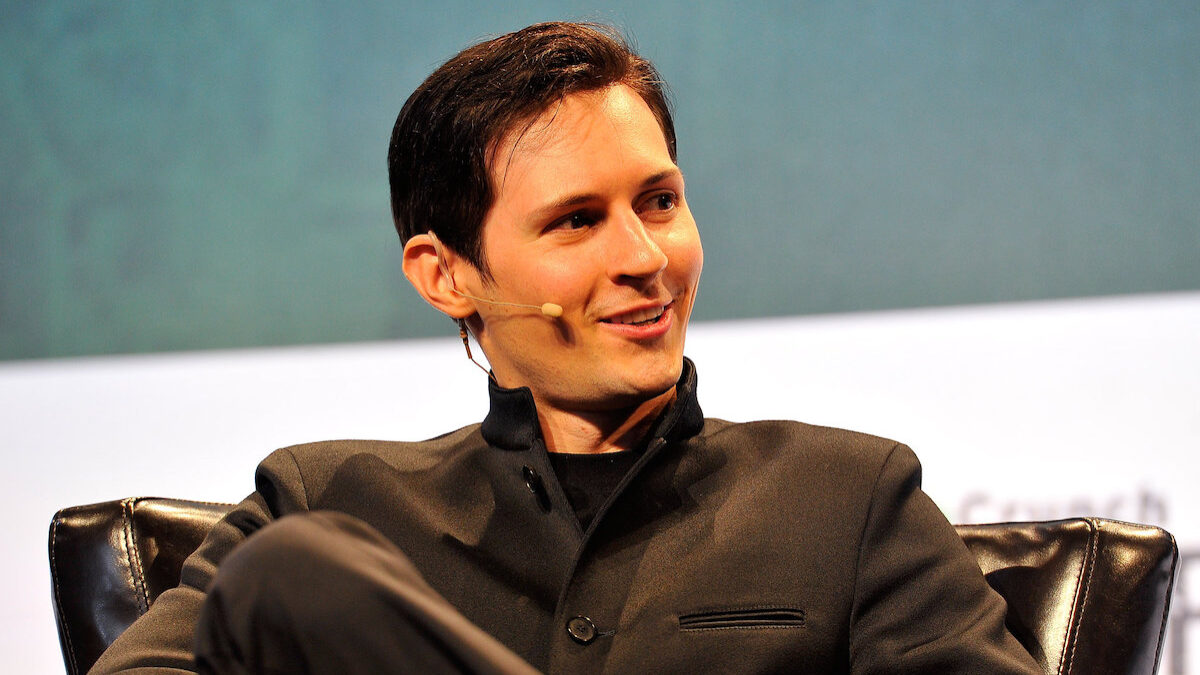
It took four months to reach my turn in the library holds line for flyover country reporter Salena Zito and pollster Brad Todd’s 2018 book, “The Great Revolt.” Except for a short stint in Washington DC, I’ve lived in the kind of states — Wisconsin, Michigan, Indiana — she crisscrossed to talk to the people who caused President Trump’s upset win. This book made me fall in love with them. They’re hard-working, thoughtful overcomers, people who give to their neighborhoods and love America.
Zito was a writer for the Pittsburgh Tribune-Review for 11 years before moving to the New York Post in 2016 after her reporting revealed a rare finger on Trump America’s pulse during that wild, paradigm-shattering election. She is now a Washington Examiner writer and CNN analyst. This, her first book, recommends itself to every civic-minded American. Its themes go straight to the heart of American life.
Her interview style is mostly to to listen to ordinary Americans uncynically, letting them speak in their own words and assuming good intentions. That may sound basic, but it’s actually a big departure from the cynical, suspicious, bitter gotcha slant of much of today’s political coverage. Essentially, Zito allows Americans to tell their own stories, and fashions it with light touch into a readable overview of her conversations, salted with polling from Todd that shows their dispositions illustrate far larger trends in politics and American life.
These kinds of Americans are rarely interviewed by national reporters (when news today is reported at all instead of spontaneously generated from a floating head full of hot air). The interviewees are deeply invested in local communities that span a large chunk of heartland America. They lead unions, companies, volunteer organizations, churches, and families. They come across as thoughtful, observant, credible, and most of all the kind of invested, attentive citizens I’m proud to share a country with. They have things to say that the rest of us ought to hear.
Here are a few selected excerpts containing a good deal of common sense about where America is today and how it got here. I heartily recommend reading the book for a deeper sense of today’s American life in the era of Trump, and beyond. This is just a small taste of the side of America that, even after 2016, remains far less visible but no less consequential than the lifestyles of the rich and famous.
1. Deep Concerns Over a Loss of the American Work Ethic
Perhaps the deepest common groove between Zito’s interviewees is work ethic. These Trump voters hustle, and come from families of hustlers. That doesn’t mean they’re rich. But they know and believe strongly in both sides of the equation of a day’s wages for a day’s work. Many expressed worries that Americans have gotten too lazy and entitled, although they put it in more charitable terms.
The 70-year-old Pennsylvanian Rose Zuba came from deep poverty, with a father killed in the mines when she was just three years old and her young mother scrambling ever afterward to care for her children, with help from Zuba’s uncle, who became disabled on the job.
“Zuba says part of her frustration in the past decade or so is her weariness of people not doing an honest day’s work or at least trying to better themselves,” Zito and Todd write.
“Here you had my uncle who had one arm and he did have relief, but I think it was twenty dollars per month, and what he got for food from relief was like a pound of processed beef and one pound of butter and powdered eggs and powdered milk, and that was about it for the month,” Zuba told Zito. “He had one arm and he went out and worked. Whether it was cut the weeds, you know, from the highway or even into different institutions to work. Like as a janitor and things like that. And what really is annoying, I think, is people who are able-bodied to work and don’t.”
2. Unlikely Effects of Campaign Finance Restrictions
On page 13, Zito makes an interesting observation about how campaign finance restrictions favored by both Democratic and Republican establishment types backfired on them hard in helping fuel Trump’s insurgent candidacy.
“Trump’s preference for making his newsworthy — and often outlandish and always candid — statements via his Twitter account enabled him both to speak directly to his audience and to command the full attention, and agenda, of the press corps. That dominance of the spotlight, even when the spotlight turned negative, was a crucial component of Trump’s primary victory in a crowded field subject to a ruthlessly low campaign donation limit of $2,700 per person. If every candidate’s ability to advertise is limited artificially by legal donation caps, then the candidate with the most free media attention, however harsh it might be, has an advantage.”
3. The College Bubble Twists a Knife Into Flyover Country
People from Iowa to Wisconsin to Pennyslvania have noticed that when they send their best and brightest off to college, many don’t come back, and even despise their roots. Like a smaller-scale version of immigration to rich countries from poor countries, herding America’s young into college has fueled a “brain drain,” depriving those communities of potential leaders and social entrepreneurs with the capacity to help solve local problems.
It also teaches young people to look down their nose at hands-on work and the necessity of working their way up the ladder, which are social problems as much as they are economic and cultural distortions. In a double whammy, while depriving young people of the will to work and siphoning their capital for starting life until the loans are paid off, government student subsidies also tilt the field against trades that often offer salaries much better than what’s offered for white-collar work.
“Finding new employees is difficult now, though. We don’t have young people coming in wanting to do assembly work, even if you do pay the magical fifteen dollars an hour and you offer benefits that nobody else offers… young people don’t want to do this type of assembly work and be machine operators,” Amy Giles-Maurer, CFO of a custom keyboard manufacturing company in Kenosha, Wisconsin, told Zito.
‘Quite honestly, I think when the government got involved in making school loans their business so that everybody could go to college, I think they’re doing a huge disservice to the trades. I think you could make a very good living in the trades. I don’t think there’s anything wrong with that.’ she says, echoing a common theme of employers and economic development recruiters interviewed across Trump Country.
Maurer says that in ten to fifteen years, tradespeople are going to be able to write their own ticket, because there are going to be so few of them. ‘We’re always going to need a plumber. We’re always going to need an electrician, somebody to work on your car. And as much as automation does come into our lives, there’s still going to be people who need to repair the machines. The machine operators and repair and setup. We would pay well for that,’ she says.
4. Distance, Not Education, Turned College-Educated Against Trump Voters
Later, in their closing arguments, Zito and Todd point out the interesting social difference between college-educated people who voted against Trump, versus college-educated people who voted for him: the latter were integrated into communities of people unlike them in terms of education and income. They saw and touched the other half of America every day, and therefore had sympathy with their concerns. It wasn’t education that made the educated understand Trump voters, it was relationships.
“Educated voters who socialize, work, or serve among those with only a high school degree are more likely to reflect the political views of that peer group. Meanwhile, college-educated voters in places with a preponderance of double-degree households are likely to conform to their neighborhood dinner party consensus and eschew Trumpism, even if they otherwise lean Republican,” they write.
Zito and Todd then note why this is a social problem, quoting the data-driven cultural observations of the acclaimed sociologist Charles Murray: “It is not a problem if truck drivers cannot empathize with the priorities of Yale professors. It is a problem if Yale professors, or producers of network news programs, or CEOs of great corporations, or presidential advisers cannot empathize with the priorities of truck drivers. It is inevitable that people have large areas of ignorance about how others live,but that makes it all the more important that the members of the new upper class be aware of the breadth and depth of their ignorance.”
Since the election, however, it’s pretty safe to say the elite repulsion against bread-and-butter Americans has only intensified.
5. The Double Standard on Clinton Was Painfully Obvious
Democrats are still having a hard time admitting that Hillary Clinton was at least as ethically checkered a candidate as Trump. But that was obvious to lots of people with a basic sense of ethics. A female business leader from Wisconsin, Christine Baker Borglin, told Zito it was obvious Clinton was lying, and was insulting to hear she should vote for a corrupt person like Clinton as a totem of femaleness.
“For Borglin, Clinton’s mishandling of classified information — with her home-brewed email server that circumvented the security process at the State Department while she served in Obmaa’s cabinet — could not be dismissed,” Zito writes.
‘So, I work at a defense contractor [Borglin said]. We deal with classified information. Everyone understands how to handle information at that company. There are five hundred people that work there and that’s one site; there’s multiple sites. There’s no way that in her position she didn’t know what she was doing with the information. I mean, I have to tell you the amount of checks and security that we go through…And it’s insulting for people who understand that for her to sit there and lie,’ she says.
6. Ordinary Americans Definitely Get Basic Economics
This explanation of the costs of government regulations, both in terms of pocketbook and in terms of lost choices, may be the best I’ve ever heard. It’s from Pennsylvanian Jonathan Kochie, a small business owner: “He also thinks that Trump might have the sense to understand how Obamacare has impacted businesspeople indirectly. ‘So my insurance went up almost a hundred dollars a month. Now think about that for a moment, that hundred dollars a month is twelve hundred dollars less I have a year to spend on things I like, like traveling or entertainment. Now, you multiply that by a couple of hundred people and that is a whole community that starts to have a loss in people using their services,’ he says. ‘Obamacare impacted me, impacted everybody here. Everybody. It is making it hard for the average working person to get ahead. You can’t. There’s too many bills.'”
In Todd’s polling, Trump voters ranked second-most-important Trump’s promise to protect Medicare and Social Security. That drives me insane because Medicare and Social Security are the prime reasons America is near bankruptcy. Trump voters probably believe that these two entitlements are not welfare but funds working people have paid into and therefore deserve to get back in old age. But the truth is that most Medicare beneficiaries get out 89 to 59 percent more than they paid in.
While the same is no longer true of Social Security, it used to be. Massive overpayments for past generations plus politicians leeching these huge entitlements to pay for mostly pork and other entitlements have bankrupted the country.

But my point here is that if Trump voters can have such a succinct understanding of Obamacare’s evil entitlement effects, they can understand this about Social Security and Medicare. How about a public information campaign predicated on their practicality and concern for the country’s finances rather than assuming they’re bitter subsidy clingers who want to subsist for the last 30 years of their lives on handouts from other people’s kids?
7. Politicizing Institutions Breeds Distrust
Declining trust in American institutions has been a persistent trend for decades. Zito’s interviews reveal that a big part of this story is the Left’s dogged insistence on capturing these institutions and attempting to use them for social engineering. Americans have noticed this manipulation and its corrupting effects on their communities. Politicized institutions get less effective, and therefore more wasteful of public resources.
One portion of this ecosystem is the obvious elite contempt for religion, which despite some decline is still a singularly massive source of meaning in American life. In discussing the importance to him of Trump’s release of potential Supreme Court picks, Iowan Neil Shaffer told Zito: “I don’t think that institutional America understands how much we have split from them, and the courts and the protection of religious liberty is a big part of that.”
8. There’s Unity Among Left and Right Against Big _____
Another part of this ecosystem of distrust is growing unease with large institutions — businesses, government, media. As I learned when reporting my own book about a different topic that touches on this current, growing antipathy towards “Big” is bipartisan among ground-level Americans.
This, I suspect, is part of the surprising fact that a good number of voters were deciding between Trump and socialist Sen. Bernie Sanders. While to the Right Sanders’ identification as a socialist is horrifying, given socialism’s murderous track record, I think it’s safe to say a significant part of his attraction is that he’s noticed big corporations and big government often seem to collude to screw the little guy. And let’s get real: Republican politicians are more frequently advocates for Big Business subsidies, loopholes, programs, and preferences than they are for fair play, constitutional rights, and an equal economic playing field for all.
“The new populism is a movement against bigness,” write Zito and Todd. “It distrusts big government, big corporations, big media conglomerates, and, perhaps more than anything else, big multinational agreements and organizations. Just as the Whole Foods shopper is leery of the pesticide practices of a Mexican agribusiness, the Trumpian populist has no confidence that the Brussels bureaucrat will make economic decisions that consider the well-being of the American blue-collar worker.”
Considering the track record of bureaucrats and corporacrats, and their often symbiotic and even interchangeable relationships, this lack of confidence is extremely sensible.
“The elected leaders of small-government conservatism grew more estranged from their natural corporate allies when they discovered the titans of commerce were summer soldiers in the war on the welfare and regulatory state, often content to cut side deals with the masters of government that protected their narrow lanes of the market – like when drug companies and hospital chains helped ‘underwrite a multi-million dollar television campaign’ pushing Obama’s comprehensive health care takeover into law,” write Zito and Todd.
Widespread recognition of this came when big business bent Mike Pence and Indiana’s Republican legislature to the anti-religious bigotry of most LGBT activists when state representatives had the temerity to propose a tame religious liberty bill in 2015. Since then, it has become standard for big business to put its finger on the scales for policies that benefit them at the expense of Americans’ constitutionally protected rights. When this happens, it is not too far a stretch to also believe that free trade deals and other things Big Business wants ought to be viewed with skepticism.
If Trump voters are to be believed, this was happening long before Indiana and bathroom bills. It just took that altercation for more people to see what Trump voters were seeing. For me, the recognition broke during the Common Core fights, which featured the same paradigm break of big versus little rather than Right versus Left. Trump’s election was another breakout of this pattern. Don’t expect it to be the last.









